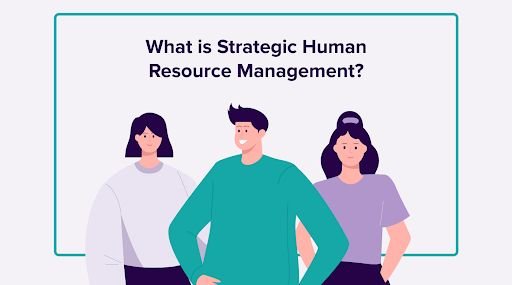3. Recruitment and retention
Recruiting and maintaining a team of high-performing individuals requires a skilled human resource manager's expertise. There are a number of legal and interpersonal areas of strategy that ought to be considered before the implementation or execution of any of these strategies, which is where your HR manager can truly shine.
4. Administration, legality, and safety
Beyond supporting the organization in administrative functions, human resource managers and expert HR services support your business in a proper legal and executive process. Maintenance of employee records, complaints, performance management, and interpersonal support also fall into this vital category.
5. Compensation and benefits
The most important, yet most overlooked role of HR is that of a liaison between employees and benefits providers. 88% of respondents mention health and retirement benefits as the most important to workers, highlighting the importance of this vital role. Thorough research, negotiation, and management of your compensation and benefits programs are critical to the success of your business.
How does SHRM differ from traditional management?
Strategic human resource management is a more comprehensive approach to managing an organization's workforce. It focuses on aligning an organization's human resource strategy with its overall business objectives and goals and understanding how the HR function can best contribute to the organization's success.
On the other hand, traditional management tends to be more task-oriented and focuses primarily on managing the day-to-day operations of an organization. SHRM emphasizes long-term objectives and goals, focusing on strategic planning and intentional decision-making. Some of the key differences between SHRM and traditional management include:
The focus on strategy
While traditional management is focused on day-to-day operations and actions, SHRM has a more strategic focus. It looks at the entire organization and how the HR function can support and drive long-term success.
There's also the consideration of how external factors such as industry trends, economic changes, and social issues can affect the HR strategy. The key goal is to assess the current talent pool and determine the best action plan to move forward.
Long-term perspective
The goal of SHRM is to create an organization that can sustain success over the long term rather than short-term objectives or gains. This requires understanding how to anticipate and manage future risks and opportunities and identifying trends that could impact the organization.

Integration with operations
The traditional approach to management focuses on functions and tasks, but SHRM involves integrating the HR function with an organization's overall operations and strategy. This means that HR needs to understand the organization's goals and objectives, as well as its operational structure and culture, to shape policies and processes that support organizational success effectively.
Employee approach
The traditional model of management focuses on the bottom line, while SHRM takes an approach that's more employee-centric. It emphasizes the importance of creating an environment where employees can thrive and be productive and equipping them with the resources and training they need to succeed.
Metrics and analytics
To ensure that HR initiatives are aligned with organizational goals, metrics and analytics are essential. With the right metrics and analytics in place, organizations can track employee performance, measure the effectiveness of HR initiatives, and identify areas where improvements may be needed.
The differences between SHRM and traditional management highlight the importance of an effective HR strategy to ensure that organizations can maximize their success. With an eye for the long-term, strategically integrating HR processes with operations, and ensuring that current employees are equipped to succeed, organizations can ensure that their initiatives are maximally effective and aligned with their goals.
The importance of strategic HR for small businesses
Strategic HR isn't just for large corporations. It’s equally important for small businesses. In fact, SHRM can be even more critical for small businesses, which often have limited resources and face intense competition in their respective markets. Here are some reasons strategic HR is so crucial for small businesses:
Talent acquisition and retention
Undoubtedly, having the right talent in your organization can make or break a small business. Small businesses can identify top talent and develop an effective retention strategy with a strategic HR planning process. This includes looking at compensation packages, training opportunities, and engagement initiatives that can help them find and keep high-quality workers.
Employee engagement and motivation
Engaged employees are more productive, which is vital for businesses with limited resources. Strategic HR involves looking at ways to increase employee motivation through incentives, recognition programs, and communication strategies. Without a strategic approach, making progress in this area can be difficult.

Compliance and risk management
Small businesses have the same legal requirements as larger companies, and failure to comply can have serious consequences. Strategic HR involves risk management strategies that help organizations identify potential risks and put plans in place to mitigate them. A strong HR strategy can also help companies meet their compliance requirements.
Succession planning
Succession planning is essential for any organization intending to ensure a smooth transition in leadership when needed. A strategic HR strategy includes developing plans for succession, including identifying potential candidates and developing their skills and abilities. These changes must be appropriately managed to minimize disruption in operations.
Business growth and expansion
The goal for most businesses is growth and expansion. Strategic HR can be instrumental in this, helping organizations identify and develop the right talent to support their growth goals. This includes taking a proactive approach to recruiting and training, as well as looking at ways to improve employee engagement and productivity.

How can an HR management service help you?
When you choose an HR outsourcing service like Bambee, you get access to the best in HR technology, tools, and resources that can help you attract high-quality workers, improve employee productivity, and boost retention.
Avoid missing out on potential talent
With a strategic plan, you can ensure that you’re sourcing the best candidates for your organization and setting yourself up for success. There's no substitute for an effective management system to ensure your organization takes advantage of the best talent available.
Leveraging the right technology
Technology can be a powerful tool to improve efficiency and simplify HR tasks. Managing employee data, tracking performance, and managing compliance are all made easier with the right technology in place. With an effective management service, you can have access to the right tools and technology to support your organization's growth.
Reduce workplace conflicts
Conflict in the workplace can be problematic and costly for any business. A performance management service can help you identify potential issues and develop strategies to resolve them. Thorough planning and open communication can help you create a workplace environment free from behavior that affects morale.

Avoid financial risks
Unnecessary financial risks can be avoided with the right approach to HR. An effective management service will help you identify potential risks and develop strategies to address them, to minimize costs, and maximize profitability. Investing in the right technology and sound processes can help you make decisions faster, saving both time and money.
These are just a few of the many ways that a human resource management strategy can benefit your business. When leveraged properly, it can be a powerful tool for any organization looking to create a competitive advantage and maximize its performance.
Support long-term business goals by taking a strategic view of HR.
Supporting long-term goals with effective HR management is essential to the success of any organization, whether a small business or a large firm, an HR outsourcing service like Bambee can help you develop the right recruiting, training, compliance, and risk management strategies.
Strategic human resource management can help attract and retain high-quality workers, improve employee productivity, and boost retention. With the right technology and tools in place, you can ensure that your organization is prepared for the future.
Try Bambee today to gain access to all the tools and resources you need for effective HR management.







